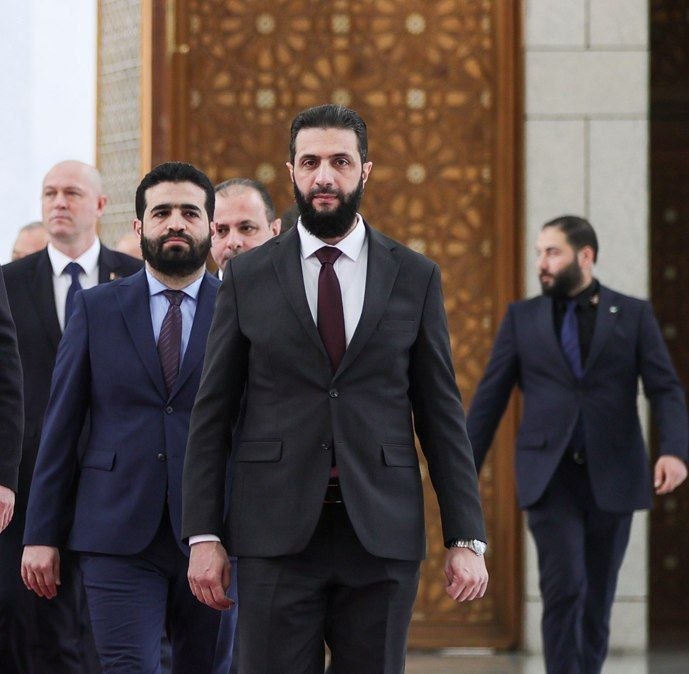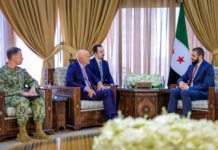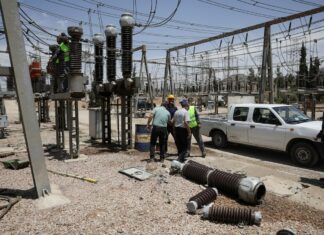
The US introduced a draft resolution to the UN Security Council calling for the removal of Syrian President Ahmad al-Sharaa and Interior Minister Anas Khattab from international sanctions lists ahead of Sharaa’s scheduled visit to the White House on Monday November 10.
According to The Associated Press, the resolution seeks to drop restrictions imposed in 2014 that froze assets and barred travel by both Sharaa and Khattab under measures targeting groups linked to Al-Qaida (AQ) and ISIS. The US, which holds one of the council’s five permanent seats, is pushing for a vote by Thursday. Adoption requires the support of nine of the 15 members and no vetoes from the permanent members, China, Russia, France, Britain and the US.
Diplomatic sources told Reuters that Washington has been advocating for months to ease sanctions on Syria, arguing the changes would strengthen political and humanitarian coordination. The text of the resolution, also welcomes Syria’s “commitment to combating terrorism” and emphasizes the Security Council’s “respect for Syria’s sovereignty and territorial integrity.”
Efforts to Repeal the Caesar Act
Parallel to the UN discussions, the Trump administration is working to repeal the Caesar Syria Civilian Protection Act, the most sweeping US sanctions legislation against Damascus. The Wall Street Journal reported that the Senate passed a measure within the annual defense authorization bill that would cancel the act, while the House of Representatives continues to debate final language.
A senior administration official told the Journal that the White House “supports the complete repeal of the Caesar Act,” adding that removal “is necessary to enable American and regional companies to operate in Syria.” The Caesar Act, enacted in 2019, restricted reconstruction efforts by penalizing entities conducting business with Assad regime institutions.
Syrian Presidential Media Adviser Ahmad Zaidan said Sharaa’s visit “marks a historic first, signaling a new phase in US–Syrian relations.” He confirmed that the talks would address lifting sanctions, promoting bilateral cooperation, and reviewing regional developments.
Humanitarian and Political Calculations
The UN Office for the Coordination of Humanitarian Affairs estimates that 90% of Syrians live in poverty, and 16.5 million people require humanitarian assistance, including nearly 3 million facing acute food insecurity. Humanitarian groups argue that easing sanctions would improve access to aid and help rebuild essential infrastructure.
Some US lawmakers and analysts view the move as a calculated step to encourage Syria’s alignment with US regional priorities, including participation in the 80-nation coalition against the ISIS. Others expressed concern that removing restrictions could weaken accountability for wartime abuses.
White House spokeswoman Caroline Leavitt told reporters Tuesday that President Trump “intends to meet with his Syrian counterpart to give Syria a real chance for peace,” describing the policy shift as a reflection of “good progress under the new Syrian leadership.”
If approved, the resolution would represent the most significant change in US and international policy toward Syria in over a decade, potentially opening the door to renewed diplomatic and economic engagement.








